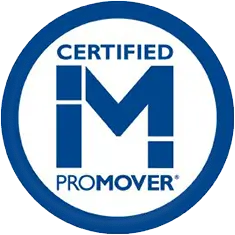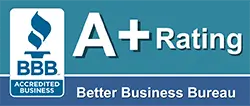Relocating can be an exciting yet challenging time, especially when it involves long distances. Selecting the right moving company is critical to ensuring that your belongings are transported safely and efficiently. In this article, we will guide you through the steps necessary to make an informed choice.
Understanding the Basics of Long-Distance Relocation
Long-distance relocation is defined as a move that exceeds a certain mileage threshold, which generally hovers around 100 miles. Beyond just the physical distance, such moves can involve intricate logistics and planning. It is imperative to thoroughly understand this process before you start making choices.
The Importance of Choosing the Right Moving Company
The choice of moving company can significantly impact your relocation experience. A credible and reliable company can save you time, money, and stress. Conversely, a poor choice may lead to damaged belongings, hidden fees, and a frustrating experience overall.
Moreover, a qualified moving company will have experience dealing with the unique challenges that come with long-distance moves, including customs regulations, weight limits, and the nuances of various state laws. They should also be equipped with the necessary resources, such as specialized vehicles and trained personnel, to handle your belongings safely and efficiently. This expertise can be invaluable, especially when transporting fragile items or large furniture that may require disassembly and careful packing.
Key Factors to Consider in Long-Distance Relocation
When considering long-distance relocation, several key factors come into play:
- The distance of your move
- Available moving services (packing, storage, etc.)
- Your budget
- Time constraints
- Insurance options and policies
Evaluating these factors with respect to your specific needs will guide you in selecting a moving company that aligns with your expectations. Additionally, it is wise to consider the timing of your move; peak moving seasons can lead to higher prices and limited availability. Planning your relocation during off-peak times can not only save you money but also provide you with more options to choose from.
Another important aspect to think about is the emotional toll that long-distance moves can take. Leaving behind familiar surroundings, friends, and even local services can be daunting. It is crucial to prepare for this transition mentally and emotionally. Engaging with local communities in your new area, researching social groups or clubs, and even planning visits back to your old home can help ease the adjustment period. Understanding that relocation is not just a physical journey but also an emotional one can make the process smoother and more manageable.
Evaluating Moving Companies: What to Look For
Before committing to a moving company, it is essential to conduct a thorough evaluation of potential contenders. Not all moving companies are created equal, and various aspects can affect the quality of service you will receive.
Assessing the Company’s Reputation
Begin your evaluation by checking the company’s reputation. Online reviews, testimonials, and referrals from friends or family can offer valuable insights. Websites like the Better Business Bureau or Google Reviews can help you identify any red flags.
A moving company’s reputation often reflects its reliability, professionalism, and customer service. Don’t hesitate to reach out to previous customers for their experiences; a little inquiry can save you from potential headaches. Additionally, consider looking for any awards or recognitions the company may have received in the moving industry, as these accolades can further affirm their commitment to quality service.
Checking for Proper Licensing and Insurance
The next step is to verify if the moving company is properly licensed and insured. You can check the Federal Motor Carrier Safety Administration (FMCSA) website to confirm if they hold a valid USDOT number. This number indicates compliance with federal regulations, making it a crucial aspect of your evaluation.
Insurance is another critical facet; inquire about the types of insurance they provide. Ensuring your belongings are protected during transit will give you peace of mind during the whole moving process. It’s also wise to ask about the claims process in the event of damage or loss, as understanding how they handle such situations can be an indicator of their customer service quality. A reputable company will have a clear and straightforward claims process, ensuring you are not left in the dark should any issues arise.
Comparing Pricing and Value
Pricing is always a significant consideration. However, it’s vital to look beyond just the numbers; compare the value for money. Some companies may quote lower initial prices but use hidden fees to increase the final bill.
Request detailed estimates from multiple companies, including each aspect of the move, to better understand what you will end up paying. Ensure to inquire about non-refundable deposits and service charges that may apply. Additionally, consider the services included in the price; for instance, some companies may offer packing services, while others may charge extra for this. Evaluating these factors can help you determine which company provides the best overall value, ensuring you get the most for your investment while minimizing unexpected costs.
Questions to Ask Potential Moving Companies
Once you have shortlisted a few moving companies, it’s time to ask them questions to help narrow down your choices further. This is an opportunity to gain clarity on how different companies operate and what you can expect.
Inquiring About the Moving Process
Understanding the moving process is crucial. Ask detailed questions about how the move will be planned, the timeline, and the specific roles they will play. A reputable moving company should be transparent and proactive in explaining their methodology.
Inquire about their packing and loading processes and whether they provide any packing materials. Knowing these details will help you prepare better for moving day.
Discussing Hidden Fees and Extra Charges
Hidden fees can quickly make your moving costs balloon. Hence, inquiries regarding potential extra charges are critical. Ask if they charge fees for services like elevator use, long carry, or heavy items. Not all companies are upfront about these fees, so thorough questioning is essential.
Make sure you get clear, written estimates that specify all costs involved to avoid any surprises down the line.
Understanding Their Dispute Resolution Process
In the event that something goes wrong, knowing how a company handles disputes can save you a lot of trouble. Questions regarding their policies on delays, damages, or loss of items are crucial. An effective moving company will have a plan in place for resolving complaints and compensating dissatisfied customers.
Consider their response times and willingness to work with you during challenging situations as well; a reliable company should place a high value on customer satisfaction.
Preparing for the Move: Tips and Tricks
Once you have selected a moving company, the next phase involves preparing your belongings for relocation. Preparation is key to ensuring a smooth transition to your new home.
Organizing and Packing Your Belongings
Start by organizing your belongings; this includes decluttering and sorting items to determine what to keep, donate, or discard. This will not only simplify the packing process but also reduce moving costs since fewer items mean less weight.
When packing, label boxes by room and contents. This tactic makes unpacking at your new destination more manageable and efficient. Also, consider using quality packing materials to provide better protection for fragile items.
Handling Special Items and Valuables
Special items such as artwork, antiques, or sensitive electronics require extra care during the move. Protect such valuables by using appropriate packaging, and consider speaking to your moving company about insurance options specifically for these items.
If possible, transport high-value items yourself to prevent risks. This approach provides added security and peace of mind, ensuring that your most treasured possessions are safe during transit.
Managing Moving Day Stress
Moving day can be overwhelming, so it’s essential to have a plan in place. Prepare essentials such as important documents, medications, and a basic set of tools to have easily accessible when you arrive at your new home.
Additionally, consider scheduling the move during weekdays when traffic is generally lighter. Keeping a checklist and delegating tasks to family members or friends can help you maintain focus and reduce tension on this busy day.
In conclusion, choosing the right moving company for your long-distance relocation is a task that requires careful consideration and research. By following the guidelines outlined in this article, you can minimize risks and make your moving experience far more enjoyable.
















